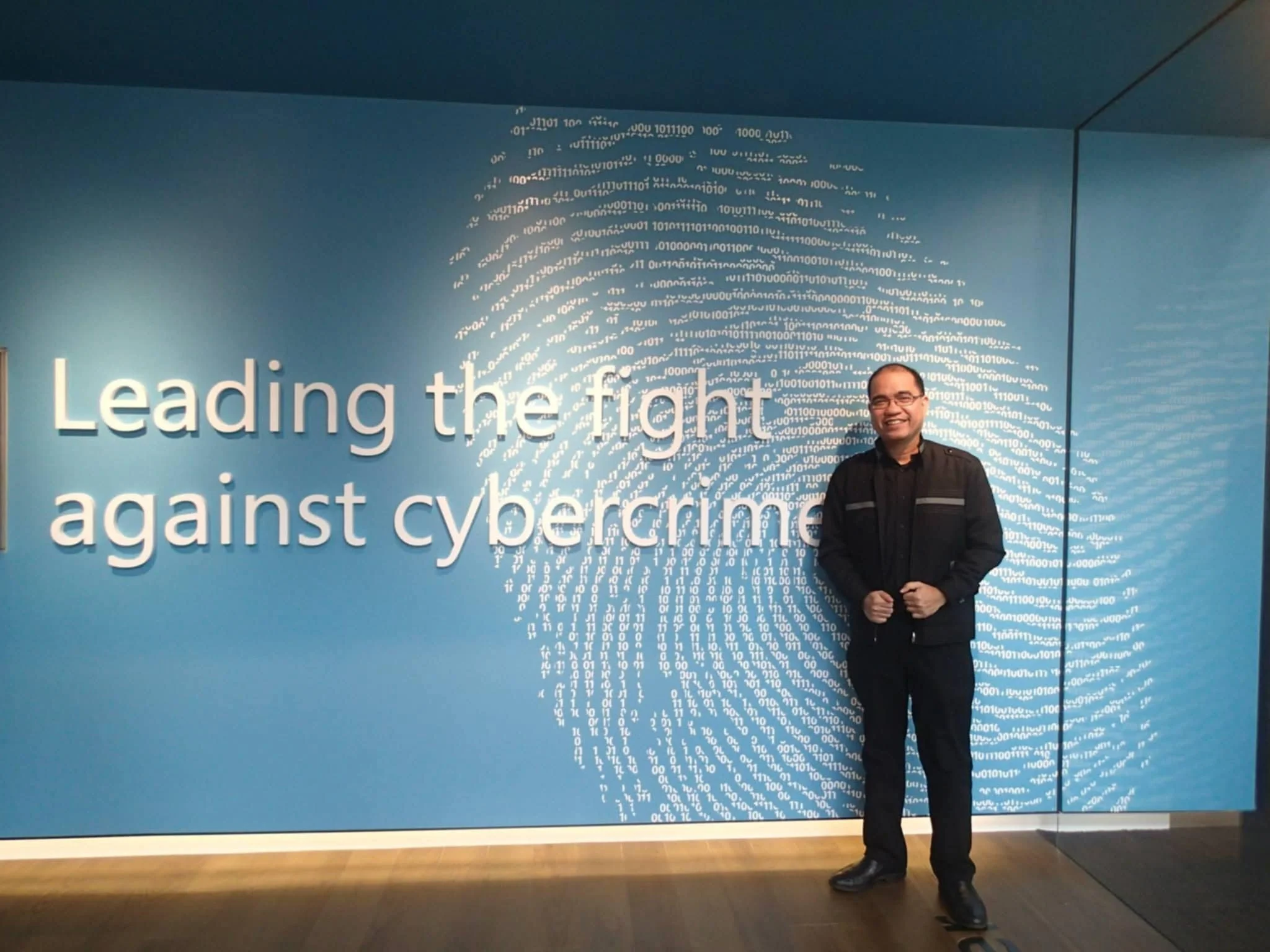Who You Gonna Call? Scam Buster
/Samaniego at Microsoft’s Cybercrime Center in Redmond, Washington
Along with Jocel de Guzman, Samaniego co-founded Scam Watch Pilipinas, a national citizen movement aimed at educating Filipinos on cyber fraud.
Armed with a journalist’s instinct, a techie’s knowledge, and an almost obsessive disdain for scammers, Samaniego has spent years documenting the ever-morphing tactics of digital fraudsters. Whether it’s a suspicious link on Facebook Messenger, a fake delivery notification via SMS, or a bogus banking website preying on the elderly, Samaniego is usually one of the first to ring the alarm bells. His social media posts have become an informal warning system widely shared by ordinary citizens and law enforcement alike.
What sets him apart isn’t just his ability to sniff out a scam—it’s his doggedness in confronting the institutions that enable them knowingly or not. He has called out telecom companies for failing to curb text scams, criticized banks for their sluggish customer support to hacking victims, and even confronted platforms like Facebook and Google over their lax oversight of fraudulent ads and phishing operations.
Samaniego’s efforts go beyond mere exposure. He regularly participates in cybersecurity forums and collaborates with both public and private agencies, hoping to bridge the gap between technical solutions and public awareness. He’s been a constant voice in pushing for stronger cybercrime legislation and better digital literacy programs in schools. To many, he functions as the country’s de facto cyber watchdog—although without the budget or institutional backing.
Yet, the battle is uphill. Every scam he helps expose seems to be replaced by more. Many cases go unpunished due to jurisdictional issues or outdated laws. Even when authorities act, the results are often too little, too late. The perpetrators hide behind digital anonymity, and victims—mostly the poor and uninformed—are left holding the bag.
(Photo by Kenneth Surillo | Pexels.com)
Ironically, despite his laudable efforts, Samaniego himself was once falsely accused of masterminding cyberattacks on the Armed Forces of the Philippines (AFP) and even the National Security Adviser (NSA), Gen. Hermogenes Esperon. While the actual cybercriminal openly confessed to compromising nearly a hundred websites, the narrative somehow shifted toward him. “The spotlight was unfairly turned in my direction, despite the glaring truth. Yet, despite all the noise, not a single case, nor even a formal complaint, was ever filed to link me to any cybercrime. There was no evidence, because there was no wrongdoing on my part,” says Samaniego.
That individual, who was then a consultant of the AFP, was no outsider. He had direct links to the military’s cybersecurity apparatus and even introduced Samaniego to the leadership of the AFP’s cyber battalion. He enjoyed unrestricted access to their systems, and worse, he harvested sensitive data from within. Yet, instead of scrutinizing him, Samaniego became the scapegoat.
This incident is just a part of a larger problem, laments Samaniego. “How can we expect to win the war against cybercriminals when some of them are embedded within the very institutions meant to protect us? The system was infiltrated, and for a time, it protected the wrong people.
To many, he functions as the country’s de facto cyber watchdog—although without the budget or institutional backing.
Still, Samaniego perseveres. Whether it’s responding to messages from scam victims at 2 a.m. or setting up meetings with senators to discuss better cybersecurity frameworks, his commitment appears almost monastic. He is often seen as a lone wolf in a jungle of digital predators, and if he sounds like a broken record when warning the public not to click suspicious links or give out OTPs (one-time passwords), it’s because Filipinos keep falling victim.
In a country where institutions are slow to act and the digital divide is wide, Samaniego’s personal crusade isn’t just admirable—it’s necessary. He reminds us that vigilance is still our best defense, and that one voice, however persistent, can make a difference in the noise of cyberspace.
Rene Astudillo is a writer, book author and blogger and has recently retired from more than two decades of nonprofit community work in the Bay Area. He spends his time between California and the Philippines.
More articles from Rene Astudillo





